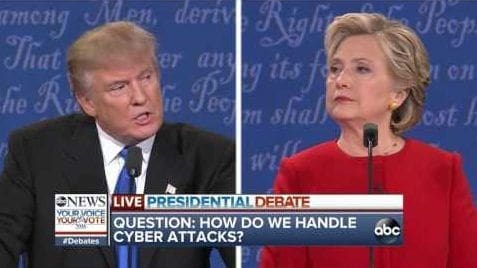Last Monday, September 26, marked the first official debate between American presidential candidates Hillary Clinton and Donald Trump. With a record-setting 84 million U.S. viewers, the event dominated both the traditional and digital mediascape, and fanned the flames of an already divisive race. While the polarized pair agreed upon little, they did seem to find common ground on one issue: the threat of foreign hackers and the importance of cyber security.
According to the Washington Post’s transcript of the debate, in a segment titled “Securing America”, moderator Lester Holt asked the candidates, “Our institutions are under cyber attack, and our secrets are being stolen. So my question is, who’s behind it? And how do we fight it?”
The first answer went to Clinton, who broke hackers down into two groups: those who are independently committing cyber crimes for financial gain and those who are operating as agents of foreign state interests. Specifically, she named China, Iran and Russia, poignantly highlighting Trump’s alleged relationship with and admiration of Vladimir Putin.
This came as no surprise, given that Clinton herself, along with the Democratic National Committee (DNC) and many of her fellow party members, famously hacked recently — with many believing the group(s) behind the attack had ties to Russia intelligence. “I was so shocked when Donald publicly invited Putin to hack into Americans. That is just unacceptable,” Clinton said, citing this as a reason she and security officials felt Trump unfit to run the country.
In response, Trump pointed to numerous groups who endorse him and stated that he agreed with some of his opponent’s remarks — namely, that the U.S. should be better than everybody else at cyber warfare but isn’t.
Perhaps his most famous line on the issue was: “I don’t think anybody knows it was Russia that broke into the DNC. She’s saying Russia, Russia, Russia, but I don’t — maybe it was. I mean, it could be Russia, but it could also be China. It could also be lots of other people. It also could be somebody sitting on their bed that weighs 400 pounds, OK?” He went on to say that America had “lost control” under President Obama, that ISIS is beating the country at the internet game and, prefaced by observations of his 10-year-old son’s computer savvy, “The security aspect of cyber is very, very tough. And maybe it’s hardly doable.”
What relevance do these massive, intangible issues of (inter)national security have in our everyday lives? The reality is cybersecurity is not just for presidential podiums — it’s a pedestrian problem. And users are increasingly becoming aware of that. Cybersecurity taking centre stage at such a major media event heralds a convergence of IT and tech culture with the popular zeitgeist. With films like Snowden, a biopic based on the former CIA employee who leaked 1.5 million NSA files to journalists, playing in cinemas and the reveal of Yahoo’s loss of 500 million user files in 2014 in 2014 —potentially the largest data breach in history— captivating headlines, cybersecurity has moved from an afterthought to top of mind.
On an individual level, as technology becomes more ubiquitous with our lives and communications, hackers are finding ever more inventive ways to infiltrate and infect our computer systems. Most of us can’t go a day without our social accounts or mobile devices — and they are increasingly under threat. According to International Business Times, social media phishing attacks have increased by 150% in the last year. The Nokia Threat Intelligence Report – H1 2016 found a 96% rise in smart phones infected with malware in the first half of 2016 compared to the latter of 2015.
For businesses, the threats of foreign hackers outlined by Clinton and Trump are very real. The International Business Times recently reported on a darknet security company claiming a group of Russian hackers is working on stealing data from 85 major American corporations, including Amazon, Apple Pay, AT&T, Best Buy, eBay, GoDaddy, Match.com, McDonald’s, Paypal, Steam and Uber. And it’s not just the big boys — as the Telegraph notes, 43% of hacks are now targeted at small businesses.
With all this increased attention and awareness, IT professionals must be prepared to be in the spotlight — and under the microscope. As cybersecurity moves more into cultural conversation, users will become more fluent and informed. They will expect —and deserve— more from us.
Much like Clinton and Trump, it’s up to us to earn their vote of confidence.



